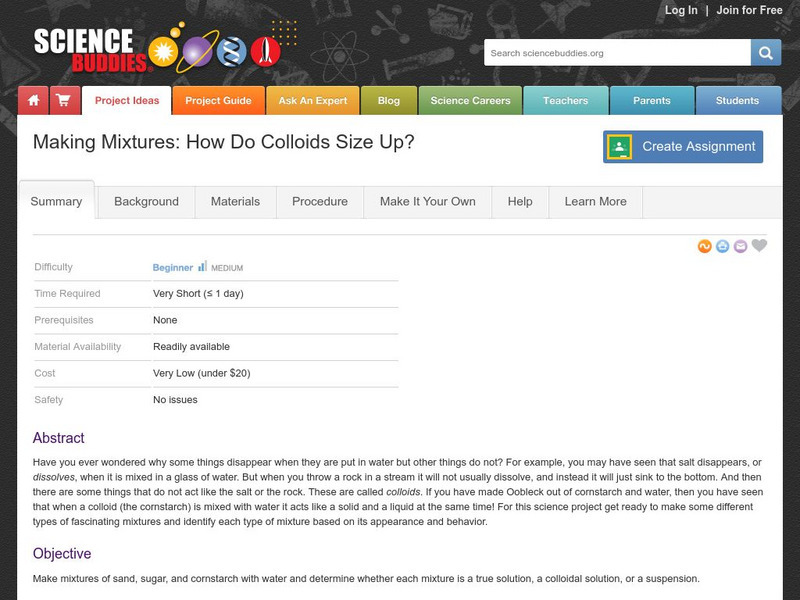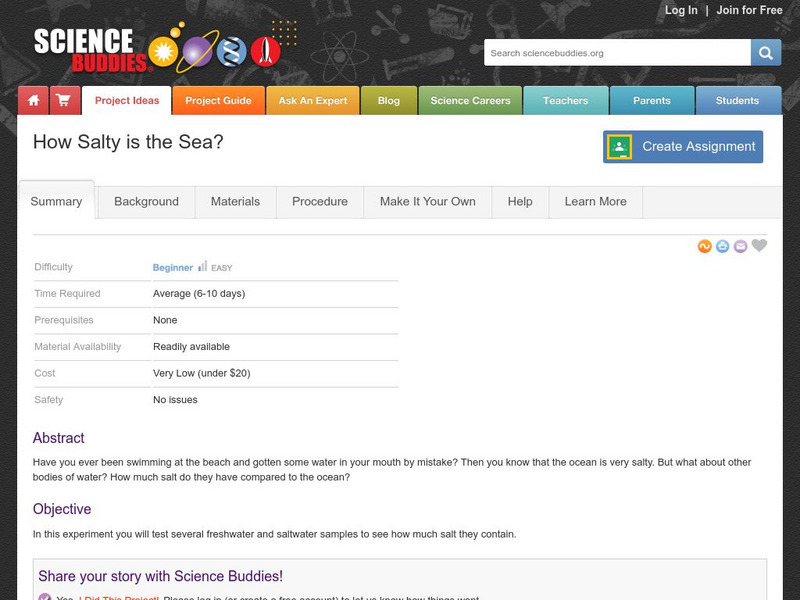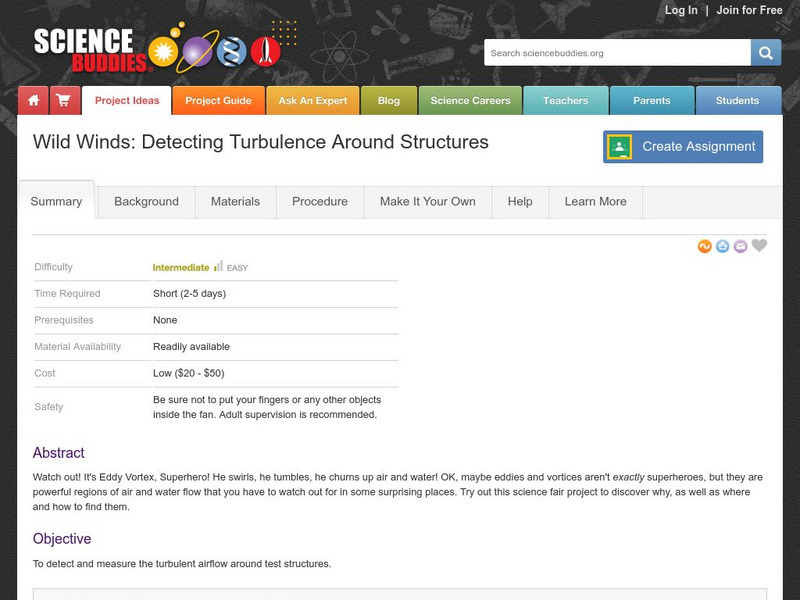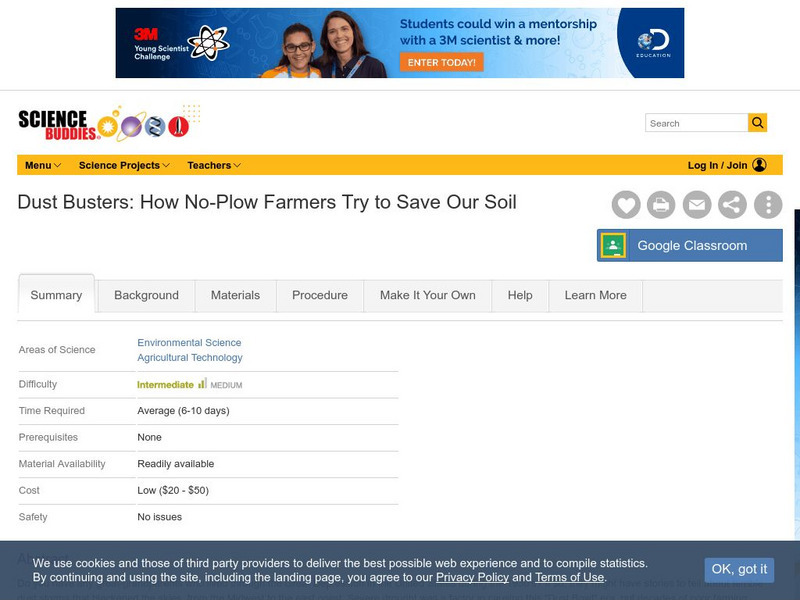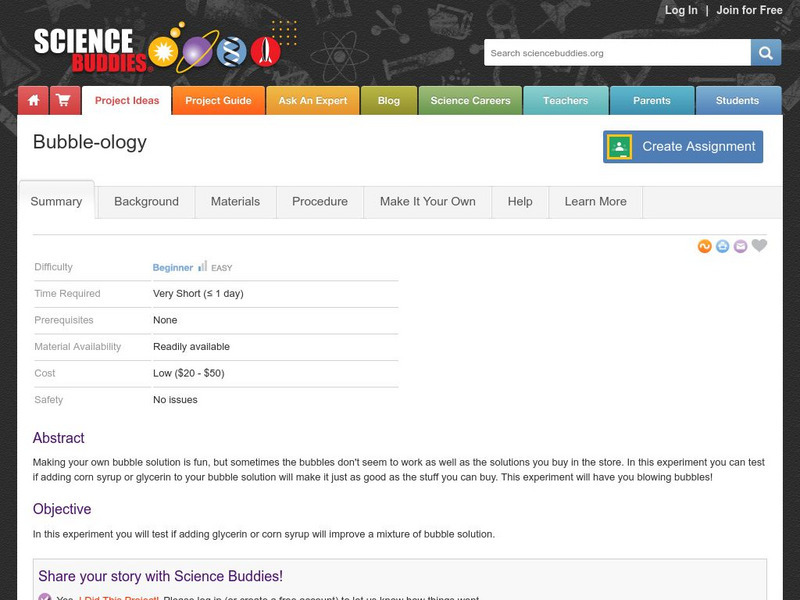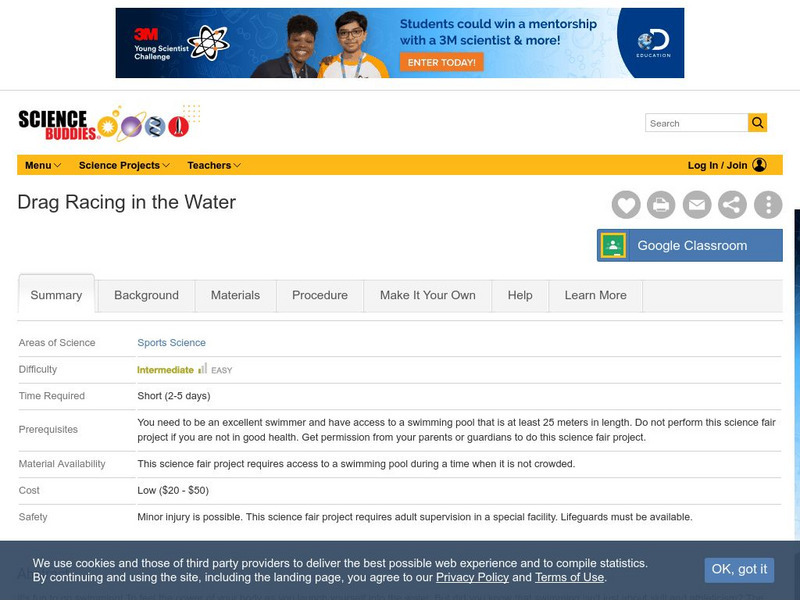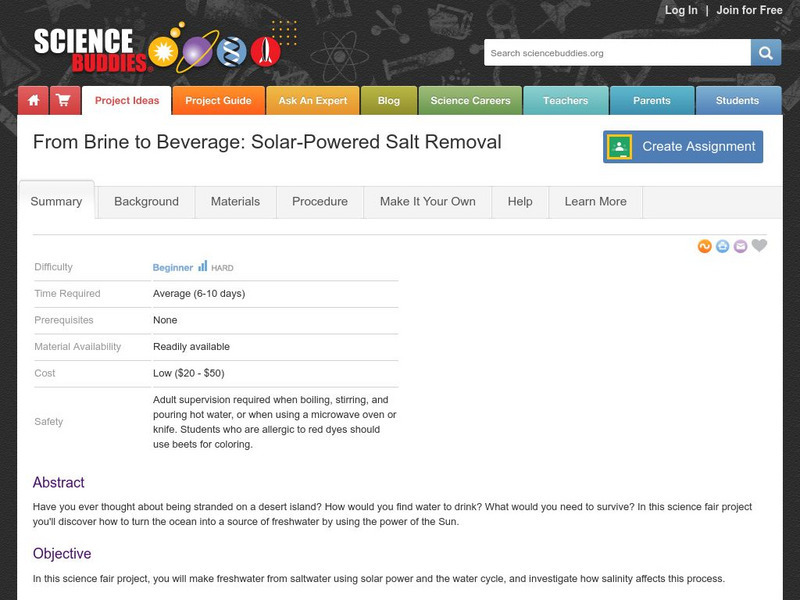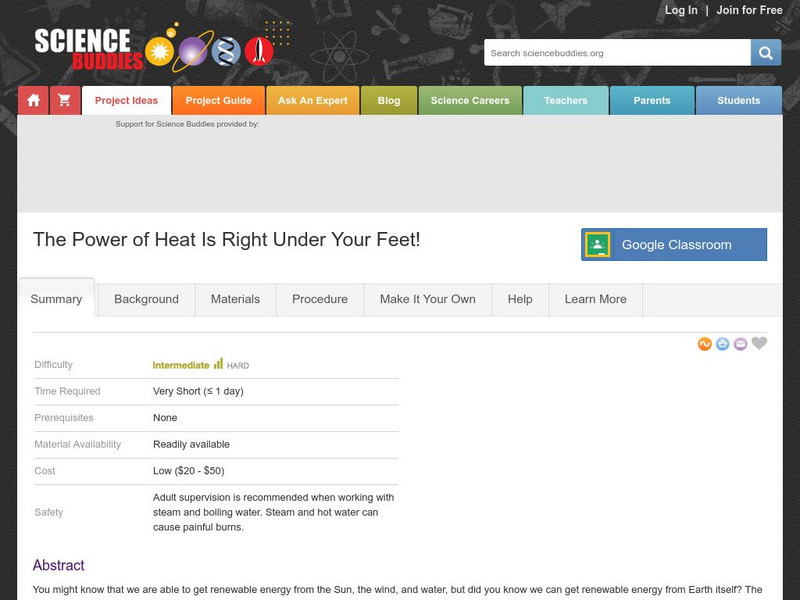Science Buddies
Science Buddies: Radiant Radish Seeds
We all know that plants need sunlight and water to grow big and tall. But did you know that inside seeds are baby plants, and that the fragile baby plant inside the seed needs to be protected? If you've ever had a sunburn, you also know...
Science Buddies
Science Buddies: Getting Critical Over Colloids
What is a colloid? If you have made Oobleck out of corn starch and water, then you know that a colloid is a mixture that acts like a solid and a liquid at the same time. This activity helps you determine the critical factors that...
Science Buddies
Science Buddies: How Salty Is the Sea?
Have you ever been swimming at the beach and gotten some water in your mouth by mistake? Then you know that the ocean is very salty. Bodies of freshwater also contain some salt, but much less compared to oceans. In this experiment you...
Science Buddies
Science Buddies: Put Your Water to Work: Using Hydropower to Lift a Load
Water creates a lot of energy, just look at the Grand Canyon. In this science fair project, you will demonstrate the power of water by converting the kinetic energy in moving water to mechanical energy, which will lift a small weight.
Science Buddies
Science Buddies: Put Some Energy Into It! Use a Calorimeter to Measure
In this science fair project, use a calorimeter with an attached heating element to measure how water responds to added thermal energy.
Science Buddies
Science Buddies: Wild Winds: Detecting Turbulence Around Structures
Watch out. It's Eddy Vortex, Superhero. He swirls, he tumbles, he churns up air and water. OK, maybe eddies and vortices aren't exactly superheroes, but they are powerful regions of air and water flow that you have to watch out for in...
Science Buddies
Science Buddies: Dust Busters: How No Plow Farmers Try to Save Our Soil
In this environmental science fair project, students will build models of fields prepared by plow-based and no-till methods, and see which ones are best at retaining soil moisture and preventing surface runoff.
Science Buddies
Science Buddies: Heavy Metals and Aquatic Environments
You might know that lead can be toxic, and that you can get lead poisoning from eating or inhaling old paint dust. Lead is called a heavy metal, and there are other sources of heavy metals that can be toxic, too. Silver, copper, mercury,...
Science Buddies
Science Buddies: Bubble Ology
Making your own bubble solution is fun, but sometimes the bubbles don't seem to work as well as the solutions you buy in the store. In this experiment you can test if adding corn syrup or glycerin to your bubble solution will make it...
Science Buddies
Science Buddies: Keep Your Candy Cool With the Power of Evaporation!
Did you know that your body has a built-in cooler? And it might not be what you think. Sweat is produced when you are hot, but its purpose is actually to cool your body as the water in it evaporates from your skin. In this science fair...
Science Buddies
Science Buddies: Drag Racing in the Water
It's fun to go swimming. To feel the power of your body as you launch yourself into the water. But did you know that swimming isn't just about skill and athleticism? The human body consists of skin, contours, and curves. How the water...
Science Buddies
Science Buddies: From Brine to Beverage: Solar Powered Salt Removal
In this science fair project you'll discover how to turn the ocean into a source of freshwater by using the power of the Sun, and the water cycle. You will ultimately find just how salinity affects this process.
Science Buddies
Science Buddies: The Power of Heat Is Right Under Your Feet!
You might know that we are able to get free energy from the Sun, the wind, and water, but we can also get free energy from Earth itself. This source of energy is called geothermal energy and it is all about taking advantage of the heat...
Science Buddies
Science Buddies: Riprap: It's Not Hip Hop but Erosion Stop
The Grand Canyon serves as an excellent example of just what water can do over a period of millions of years. This week long lab will help you understand how erosion works, how engineers work to help prevent erosion.
Science Buddies
Science Buddies: Cold Room? Heat It Up With a Homemade Solar Air Heater
Humans need food, water, and warm shelter to survive. But a lot of humans depend on fossil fuels to supply gas and electricity to heat our homes. But burning fossil fuels to create energy is harmful to the environment. In this science...
Science Struck
Science Struck: Water Cycle: An Easy Explanation for Kids
Provides a simple explanation of the water cycle by describing four main stages - evaporation, condensation, precipitation, and collection. Includes three project ideas and some interesting facts.



